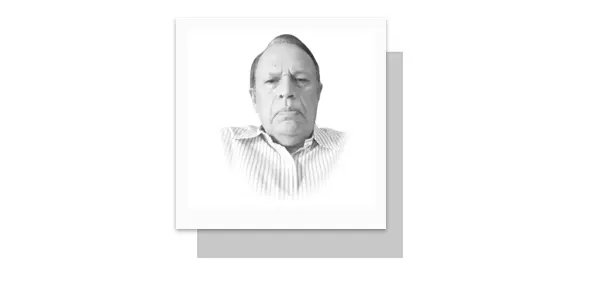PAKISTAN total external debt is $131.2 Billion as on December 2023 and it has to pay about $7Billion to IMF in the next 5 years. The country has to repay foreign debt of $27.47 Billion by November 2024. Pakistan entered IMF programme in 1958 and since then we have had 22 such arrangements. Poor governance, fiscal indiscipline and extravagance at state expense, has been the hallmark of every government.
There is no rocket science involved that the state must levy taxes on every source of income to raise enough revenues to meet current expenditure and welfare of most deprived. Endless subsidies and tax amnesty schemes for the elite, without widening tax-net was a recipe for disaster. Indirect taxation levied only added to the woes of the poor. Every civil and dictatorial regime has contributed to the economic quagmire that threatens state from within.
Former Chairman Shabbar Zaidi is on record stating that a delegation of tobacco farmers from Swabi and Mardan, linked with cigarette manufacturers and headed by the Speaker of the National Assembly, warned him not to levy even a token tax on them. Similarly, former Finance Minister Miftah Ismail stated that he was advised by a powerful individual from the ruling party not to include retail/wholesale traders in the tax net. MAJ warned us about the curse of corruption and hoarding, which we inherited from British India. All over the world, Muslim and Christian traders offer discounts during religious festivities (Eid, Ramadan, Christmas, etc.), while in Pakistan, hoarders and black marketers become active. Artificial shortages are created by wholesale/retail traders. Come the harvest season, fertilizer shortages have become a norm, although this industry receives subsidized gas. Unchecked smuggling across secure border checkpoints is eroding the economy.
Powerful lobbies, in collaboration with the Real Estate Mafia post-1979, have successfully avoided consistent taxation on real estate transactions. Meanwhile, vast stretches of fertile agricultural land have been converted into urban sprawl by the Land Mafia, exacerbating food shortages and environmental degradation. To address these issues, the tax base must be broadened, encompassing all income sources without exemptions. This includes agriculture, retail/wholesale sectors, tobacco, real estate, and major cartels. Failure to enforce taxation will lead to dire consequences, triggering economic collapse, jeopardizing national security, sovereignty, and impacting the livelihoods of over 225 million citizens through skyrocketing inflation and disrupted essential services. Additionally, halting theft in energy distribution is imperative.
The biggest hurdle for tax collection and widening tax-net is the rampant corruption within FBR, which has failed to achieve targets. It is alleged that almost three to four times revenue pilferage is gobbled by corruption and nominal amount deposited in national exchequer. The system must be made simple and digitized with minimal discretionary powers enjoyed by the bureaucracy. Most of our agriculturalists, willing to pay taxes, hesitate because of harassment and illegal demands by those assigned to collect tax. This system should be simplified so that an average semi-literate trader and agriculturalist must be able to do so, without much of a hassle and involvement of tax lawyers etc. An educated and progressive agriculturist from Vehari, Ishaq Khakwani in a tweet (X) has stated “I belong to agriculture class. I don’t have any other source of income.
The present Agriculture Tax is meagre. We should pay more. Let Agri Class join hands, lest IMF forces the government to agree to unreasonable rates.” A fixed tax, based on agriculture yield must be levied. For example, in District Vehari, there are over 80,179 cultivated land owners, out of which only 2,029 own more than 12.5 acres and only 115 pay revenue tax. Approximately 20 individuals out of these 115 pay agriculture income tax. The powerful agricultural lobby within Parliament must understand gravity of the crisis. It is an unfortunate reality that the Colonial Raj allotted state lands to their loyalists, in return for their loyalty to serve them. In Punjab, after the death of a dedicated politician Mian Fazl-i-Hussain on 9 July 1936, the Unionist Party was handed over to a technocrat and a Raj loyalist, Sikandar Hayat on 22 July. Sikandar served as Captain in British Indian Army till 1920, and was laterally inducted in the bureaucracy. He was serving in Reserve Bank of India when he took over as President Unionist Party on 22 July 1936 and resigned from bank on 20 September 1936. Both lateral inductions and appointment of technocrats in politics is a legacy of British Raj. Since 1937, the agriculturalist lobby has dominated Punjab. They formed a formidable group and enjoyed patronage of British Raj. In 1946, most of them joined AIML. After creation of Pakistan and MAJ’s death, this powerful agricultural lobby resisted land reforms and bringing agriculture income within the tax-net.
In KP, the tobacco growers are a powerful group, which has opposed taxation. The Zari Tax imposed by Punjab Revenue is just Rs300 per acre for those owning 12.5 to 25 acres; Rs 400 per acre for 25 to 50 acres; Rs500 per acre for above 50 acres; and Rs 600 per acre for Orchards etc. This is peanuts. The large majority of big landlords, owning expensive SUVs, have managed not to pay any income tax on their earnings. This must stop. They must see the writing on the wall and before the IMF forces FBR to bring them into the tax-net, they must voluntarily do so. The Tobacco and Cigarette manufacturers are amongst those who refuse to pay taxes. Similarly, the land mafia dons and real estate dealers earn billions in profits from sale/resale, but pay a nominal amount. This real estate lobby enjoys support of powerful state institutions. This abuse is no longer sustainable.
—The writer is contributing columnist, based in Lahore.
Email: [email protected]










